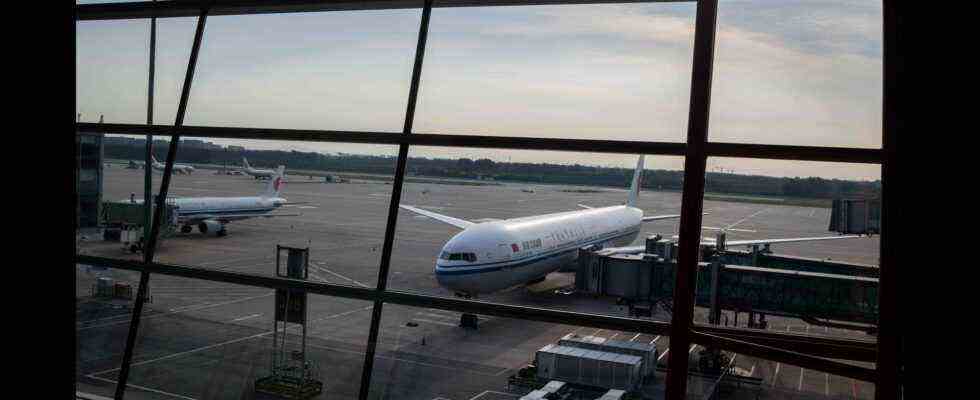Status: 01/28/2022 11:23 a.m
The People’s Republic has sealed itself off from the rest of the world. There are hardly any flights to and from China. Airlines that accidentally bring corona-positive passengers into the country will be fined.
It is still dark when the nearly full Boeing 747 lands in Frankfurt am Main early in the morning after a flight of around eleven hours from Shanghai. As the machine slowly rolls to its parking position, relief spreads among the passengers. Because taking a scheduled flight between China and Europe in Corona times is a medium-sized adventure. The reason is that the borders of the People’s Republic have been almost completely closed for almost two years now.
“The number of international flight connections to and from China has been severely reduced by the state leadership,” says David Yu, professor of financial markets at the Shanghai campus of New York University (NYU) and an expert on the aviation industry. “Compared to the pre-Covid period, we are less than ten percent of the passenger capacity. And recently, with the spread of Omikron, the number of flights has fallen even further.”
Scheduled flights cost more than ten times as much
The result: the few scheduled flights between China and the rest of the world that can be booked sometimes cost more than ten times as much as they used to. The places are often fully booked months in advance. If you get one of the coveted plane tickets from Europe to China, for example, you have to expect that the connection will be canceled at short notice.
Because China’s state and party leadership has been using a system since summer 2020 to punish airlines that – without intention – carry corona-positive passengers to the People’s Republic. More than five cases on board a machine lead to a two-week break. If there are more than ten cases, the respective connection to China will be suspended for one month. Airlines are still allowed to fly passengers out of China. As a result, the huge machines have to fly to China again and again without passengers in order to load the passengers who want to leave the country.
“Of course, this is the worst case for the aviation industry,” says Andreas Glunz, board member for international business at the management consultancy KPMG in Germany. “Constantly ramping up and down capacities is not very efficient for the airlines. This will continue to affect the airlines massively. This will certainly remain a major obstacle for the airlines in the current year.”
Cargo transportation instead of passenger flights
Most international airlines are affected by China’s state air traffic punishment system, including Lufthansa. A company spokesman confirmed this ARD radiothat Lufthansa will not be allowed to fly passengers to China on its scheduled flights for the next three weeks.
The Shanghai aviation expert David Yu emphasizes that the airlines with flights to China earn significantly less than before due to the rigid penal system, but it is still worth flying to the People’s Republic – even if there are none on the outward flight to China due to a suspension passengers can be taken along.
“On the one hand, the ticket prices are many times more expensive than in the pre-Corona times. In addition, the airlines can always take freight with them on the way to China. And the demand for air freight capacities is enormous. With air freight, four to ten times as much can be done earn as much as in the pre-Corona times.”
Passenger planes in China traffic are often becoming cargo planes these days. Most observers consider it unlikely that China’s government will soon give up its strict zero-Covid policy. A normalization of passenger traffic to and from China is therefore not in sight. And that doesn’t just have economic consequences, says Andreas Glunz from the management consultancy KMPG.
“You really have to state that there is practically no physical exchange anymore. That applies to both directions. All in all, this will lead to a further decrease in mutual understanding.”
China’s closed borders: hard times for airlines and travelers
Steffen Root, SWR, 28.1.2022 10:28 a.m

